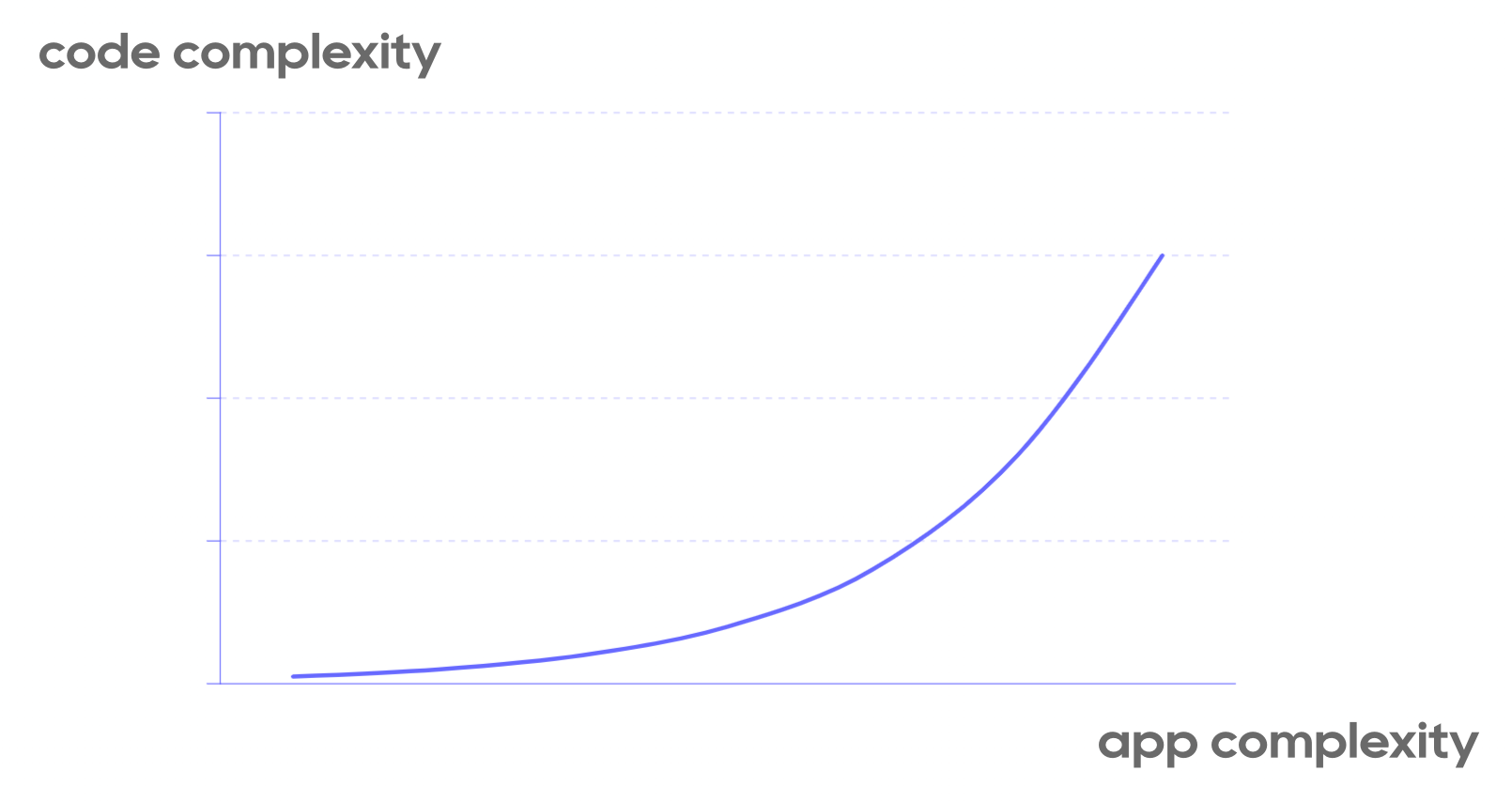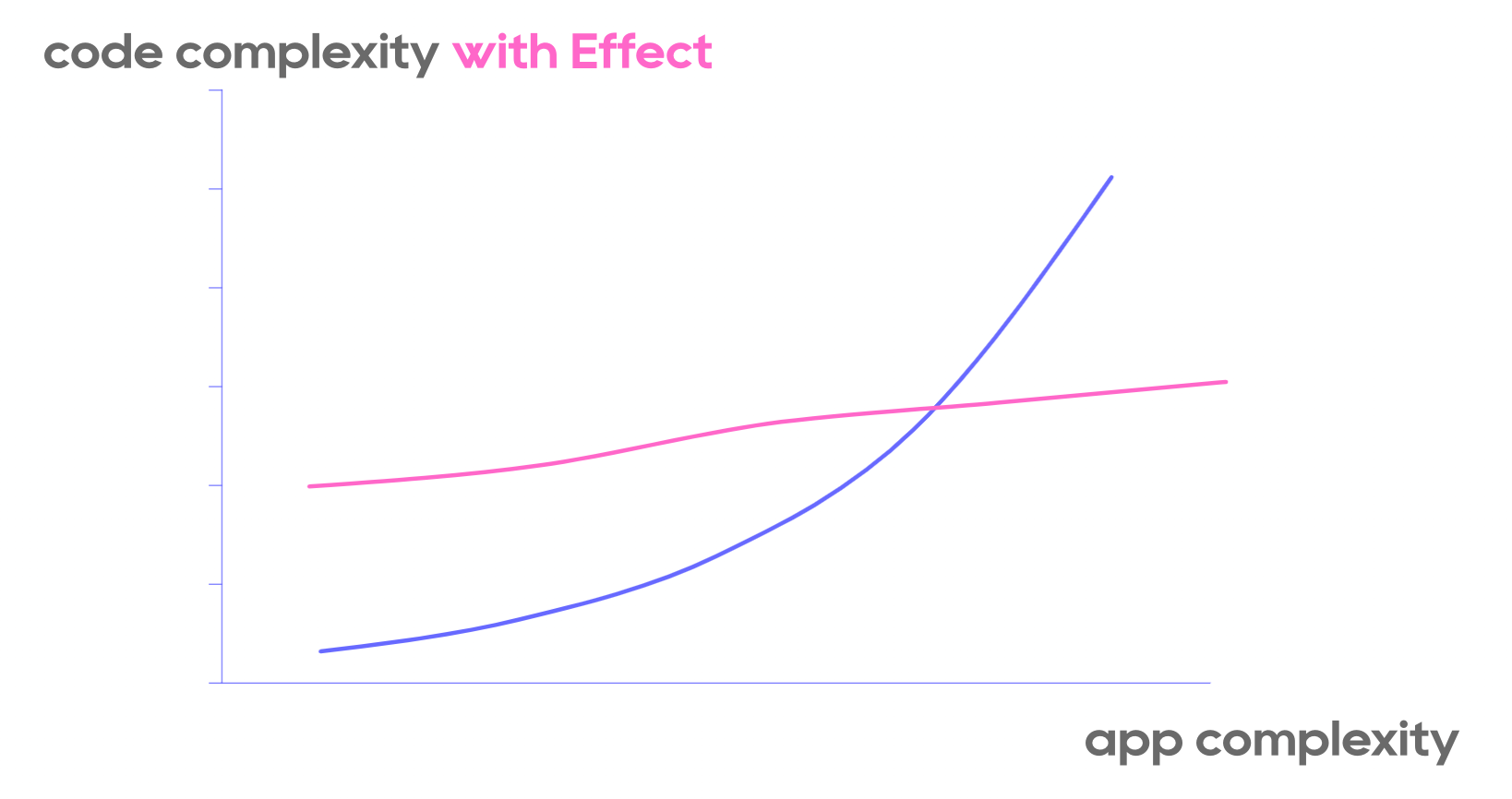Next-level type safety with Effect: an intro
6 min read ·
I recently spoke at the Effect Days conference in Vienna, briefly introducing Effect and the mental model behind its concepts. This post expands on that talk, throwing in a few more thoughts.
My path to Effect started with the fp-ts library, which I had used in several projects before. That led me to Effect, and eventually to giving this talk. At first, I was all over the place with ideas, even considering a deep dive into the theory stuff I remembered from Uni. It was VERY tempting to go over it, but I quickly figured it probably wouldn’t be that entertaining nor practical 🫠 Another thing is that with Effect.ts, you don’t need that.
So, instead, I zoomed in on the basics, focusing on introducing the “why” behind Effect.
The problem(s)
In programming, we often deal with operations that can have side effects like calling 3rd-party APIs, mutating states, etc. Managing these side effects predictably and safely can be challenging. As our apps grow, so does the complexity of our codebase and handling it becomes more difficult.

Effect is meant to help you write all the complex stuff like async code, composability, concurrency, observability, and dependency injection easier than before while keeping it type-safe.
But because it’s so powerful and has a broad API, it might be tricky to get your head around it. One thing that resonated with me was comparing it to something like Next.js for React or Nuxt for Vue but for TypeScript:
a meta-framework for TypeScript.
Let’s take a look at this code:
ts
ts
The code’s short, but every line is a ticking bomb that could go off. Also, how
might it go wrong? It might not have any issues, but to be sure, I’d need to go
through the fetchIngredients and prepareDish functions, line by line, to
understand it.
I like explaining stuff through metaphors, so here goes one:
Imagine you’re at a restaurant.
Now, what if an ingredient is missing? Or what if they don’t have your dish? Should they close the restaurant and say they don’t work anymore? It’s probably not what you’d expect.
One thing we can do is to recover from a failure and maybe somehow retry what we were doing, but with this code, we can’t magically “go back” to where we were and do something different.
ts
ts
You would expect otherwise in a restaurant. You wouldn’t expect the kitchen to start over when one ingredient is missing.
Also, what if we want to retry with different options? Imagine handling this with pure TypeScript. It could end up with quite a mess.
ts
ts
What if we could communicate, offer alternatives, and continue the computation? Effect is designed to handle that.
What is Effect?
The main thing to know is that handling exceptions differs from managing errors. Every program can run into errors safely; it’s about how you paint those errors. Throwing them as exceptions and potentially cancelling the computation is just one approach.
One thing you could do is to return an error as a value, but that requires you to handle it immediately.
What’s cool about exceptions is that they separate a handling code from a place where an exception occurred at different application levels. We wouldn’t want to lose it.

Managing errors without Effect
What if we disconnect the two? And what if we can have the best of the two worlds?
With Effect, we can have composable building blocks describing what job needs to be done. Still, you can specify how the system should handle any side effects or errors within a unified framework.

Managing errors with Effect
Using Effect
Now, let’s take a look at how we can use Effect to handle the restaurant scenario. I won’t go into the details of the library, but I’ll show you some basic building blocks.
Creating a simple effect
The code below simulates fetching ingredients, which may fail if one of the ingredients is missing. Notice the return type of the function: it’s an effect that can either:
- succeed with a list of strings,
- fail with a specific error:
IngredientError.
ts
ts
Custom errors
You can use Data.TaggedError from the effect library to create a custom
error:
ts
ts
That lets us use the catchTag method to handle the error:
Note: there are also other utilities to handle errors.
ts
ts
Creating an effect with pipe
Another way to create an effect is to use the pipe function, which lets you
compose multiple effects:
ts
ts
Running the effect
Finally, you can run the effect using Effect.runSync:
ts
ts
Notice, that I’ve used Effect.log to log the steps of the computation. Effect
has a built-in logging system! When I said it’s powerful, I meant it.
sh
sh
Retrying
Going back to the restaurant scenario, we can retry asking the customer for an order, which may fail if the customer is not ready or if the customer is ready but the dish is missing:
I’m using the Schedule module to add a delay between retries, and a
retryOrElse method to handle the retry logic. It takes three arguments:
- the effect to retry,
- a policy that specifies how to retry the effect,
- a function to handle the error if the effect fails after all retries.
ts
ts
Here’s the askCustomer function:
ts
ts
You can see that I’m using Effect.async to create an effect that can be used
asynchronously. The resume function is used to resume the computation with the
result of the effect.
Sample program
Here’s a sample program that uses the effects we’ve created and handles the errors:
ts
ts
Dependency injection
Another powerful feature of Effect is dependency injection. You can use the
provideService method to provide dependencies to an effect. In the restaurant
scenario, you may operate on different sets of ingredients, depending on the
time of the year.
First, we define the service:
ts
ts
Then, we provide the service to the effect:
ts
ts
Finally, we use the dependecy in the effect:
ts
ts
Summary
Effect gives you a safer way to code without handling exceptions, model the absence of things, and compose functions in a type-safe way, compared to un-typed JavaScript Promises.

It’s true that it requires some initial effort. While it’s incredibly powerful, getting to grips with how it works means you’ll need to invest some time and energy at the start.
Still worth it, though.
Random thoughts
Effect and algebraic effects
I learned a bit about algebraic effects in my CS studies, so the Effect library initially seemed familiar. But as I got into it, I found it was different. Sure, it solves some of the same problems but bridges the gap between theoretical exploration and practical application.
Errors as values
One thing that some other languages like Golang popularized is returning errors as values and then handling them. It allows you to manage errors, but you must process them immediately.
go
go